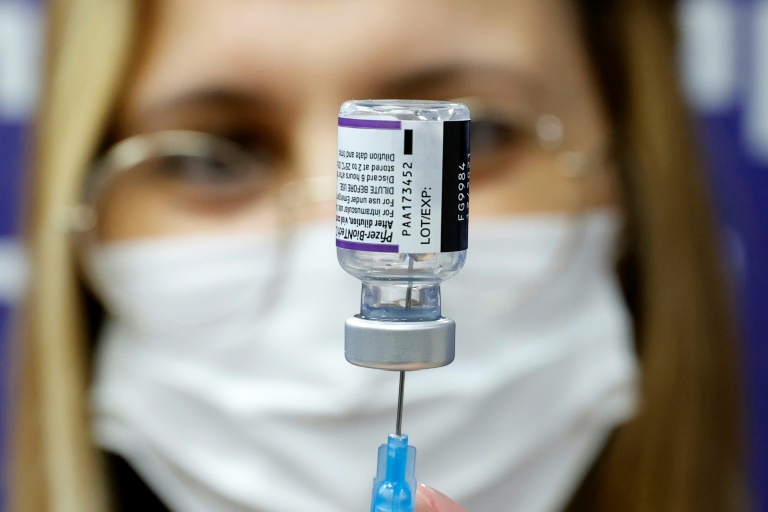Research identifies an infectious language epidemic

The efficacy of the Pfizer/BioNTech vaccine among kids aged six months to under five years was 80.3 percent – Copyright AFP Mamun Hossain
What effects did social media rhetoric have on COVID-19 infection and death rates across the U.S., and what can policymakers and public health officials learn from that? This is a question that researchers at the College of Engineering at Virgina Tech have been examining.
According to lead researcher Eugenia Rho, assistant professor: “A lot of studies just describe what’s happening online. Often they do not show a direct link with offline behaviours…But there is a tangible way to connect online behaviour with offline decision making.”
During the COVID-19 pandemic, social media became a mass gathering place for opposition to public health guidance, such as mask wearing, social distancing, and vaccines. Escalating misinformation encouraged widespread disregard for preventive measures and led to soaring infection rates, overwhelmed hospitals, health care worker shortages, preventable deaths, and economic losses.
Rho cites one important example: During a one-month period between November and December 2021, more than 692,000 preventable hospitalizations were reported among unvaccinated patients. Those hospitalizations alone cost $13.8 billion.
In the study, Rho’s team developed a technique that trained the chatbot GPT-4 to analyse posts in several banned subreddit discussion groups that opposed COVID-19 prevention measures.
The team focused on Reddit because its data was available, Rho said. Many other social media platforms have barred outside researchers from using their data.
Rho’s work used a social science framework called Fuzzy Trace Theory. This means individuals learn and recall information better when it is expressed in a cause and effect relationship, and not just as rote information. This holds true even if the information is inaccurate or the implied connection is weak. This this cause-and-effect construction is referred to as a “gist.”
The researchers worked to answer four fundamental questions:
- How can we efficiently predict gists across social media discourse at a national scale?
- What kind of gists characterize how and why people oppose COVID-19 public health practices, and how do these gists evolve over time across key events?
- Do gist patterns significantly predict patterns in online engagement across users in banned subreddits that oppose COVID-19 health practices?
- Do gist patterns significantly predict trends in national health outcomes?
Rho’s team used prompting techniques in large language models (LLMs) — a type of artificial intelligence (AI) program — along with advanced statistics to search for and then track these gists across banned subreddit groups.
The model then compared them to COVID-19 milestones, such as infection rates, hospitalizations, deaths, and related public policy announcements.
The results show that social media posts that linked a cause, such as “I got the COVID vaccine,” with an effect, such as “I’ve felt like death ever since,” quickly showed up in people’s beliefs and affected their offline health decisions. In fact, the total and new daily COVID-19 cases in the U.S. could be significantly predicted by the volume of gists on banned subreddit groups.
The study is the first AI research to empirically link social media linguistic patterns to real-world public health trends, highlighting the potential of these large language models to identify critical online discussion patterns and point to more effective public health communication strategies.
Outside of academia, Rho said she hopes this work will encourage social media platforms and other stakeholders to find alternatives to deleting or banning groups that discuss controversial topics.
“Simply banning people in online communities altogether, especially in spaces where they are already exchanging and learning health information, can risk driving them deeper into conspiracy theories and force them onto platforms that don’t moderate content at all,” Rho states. “I hope this study can inform how social media companies work hand-in-hand with public health officials and organizations to better engage and understand what’s going on in the public’s mind during public health crises.”
The study is titled “Leveraging Prompt-Based Large Language Models: Predicting Pandemic Health Decisions and Outcomes Through Social Media Language.”
Research identifies an infectious language epidemic
#Research #identifies #infectious #language #epidemic





